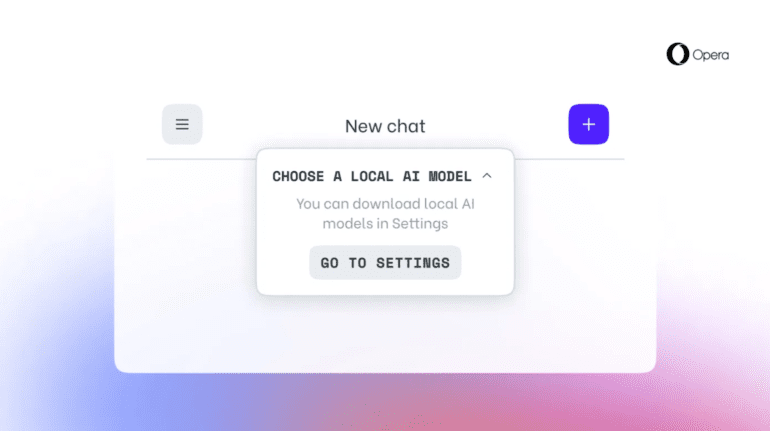- Opera now allows users to download and utilize large language models (LLMs) directly on their local machines.
- Over 150 models from more than 50 families are available, including offerings from Meta and Google.
- Operated through the Ollama open-source framework, these models promise enhanced versatility and functionality.
- Each variant requires more than 2GB of storage space, urging users to manage their storage effectively.
- The initiative underscores Opera’s commitment to facilitating access to diverse 3rd party local LLMs directly within the browser.
- Users prioritizing space optimization may explore alternative online tools such as Quora’s Poe and HuggingChat.
- Opera’s introduction of localized LLMs aligns with its ongoing exploration of AI-powered functionalities and commitment to innovation across platforms.
Main AI News:
Opera, a leading web browser company, has unveiled a groundbreaking feature today, offering users the capability to download and utilize large language models (LLMs) directly on their local machines. This strategic move marks a significant advancement in user empowerment within the digital landscape.
Initially introduced to Opera One users receiving developer stream updates, this feature grants access to a diverse array of over 150 models from more than 50 distinguished families. Among these models are notable offerings such as Llama from Meta, Gemma from Google, and Vicuna, promising users unparalleled versatility and functionality.
Operated through the innovative Ollama open-source framework integrated into the browser, these models can now be seamlessly executed on users’ personal computers. While the current selection comprises a subset of Ollama’s extensive library, Opera anticipates incorporating models from various sources in the future, further enriching the user experience.
However, it’s essential to note that each variant demands a considerable storage footprint, exceeding 2GB on local systems. With prudence, users must manage their available storage space to prevent depletion. Notably, Opera refrains from implementing storage optimization measures during model downloads, prioritizing the integrity and reliability of the user experience.
Jan Standal, Vice President of Opera, underscored the significance of this initiative, emphasizing Opera’s commitment to facilitating access to an extensive range of 3rd party local LLMs directly within the browser. He anticipates that these models may undergo size reduction as they progressively specialize for specific tasks, thereby enhancing efficiency and performance.
While Opera’s localized LLMs offer unparalleled flexibility for users keen on local testing, those prioritizing space optimization may explore alternative online tools such as Quora’s Poe and HuggingChat. This strategic move aligns with Opera’s ongoing exploration of AI-powered functionalities, a journey that commenced with the introduction of the Aria assistant in the browser’s sidebar last May.
In subsequent developments, Opera expanded the assistant’s reach to the iOS version in August, demonstrating a commitment to delivering innovative solutions across platforms. Moreover, January witnessed Opera’s announcement of an AI-powered browser equipped with its proprietary engine for iOS, responding to regulatory mandates such as the EU’s Digital Market Acts (DMA).
Opera’s foray into localized LLMs epitomizes its dedication to fostering innovation and enhancing user-centric experiences within the digital realm. As the company continues to pioneer advancements in AI-powered technologies, users can anticipate a future where digital interactions are more intuitive, efficient, and tailored to individual preferences.
Conclusion:
Opera’s introduction of localized LLMs signifies a significant advancement in user empowerment and customization within the web browsing landscape. By offering access to a diverse array of models directly within the browser, Opera not only enhances user experience but also demonstrates its commitment to innovation and adaptation to evolving market demands. This strategic move underscores the increasing importance of AI-powered technologies in shaping the future of digital interactions, heralding a new era of personalized browsing experiences. As competitors strive to keep pace, the market can expect heightened competition and further innovation in AI-driven features and functionalities across web browsers.

